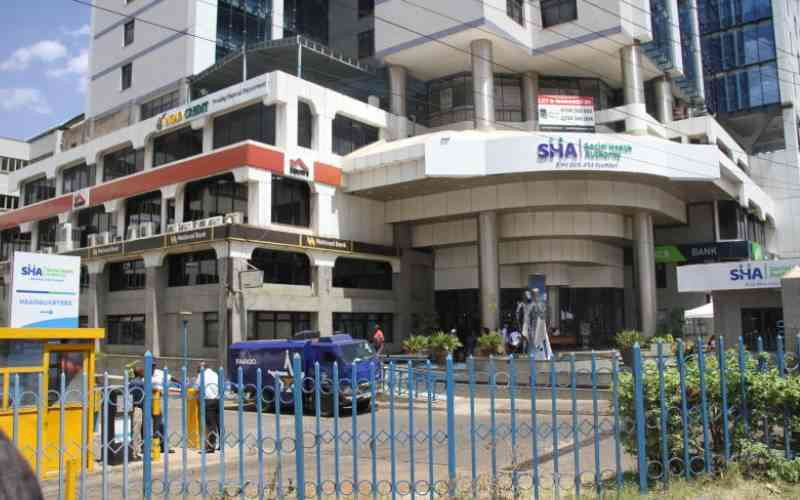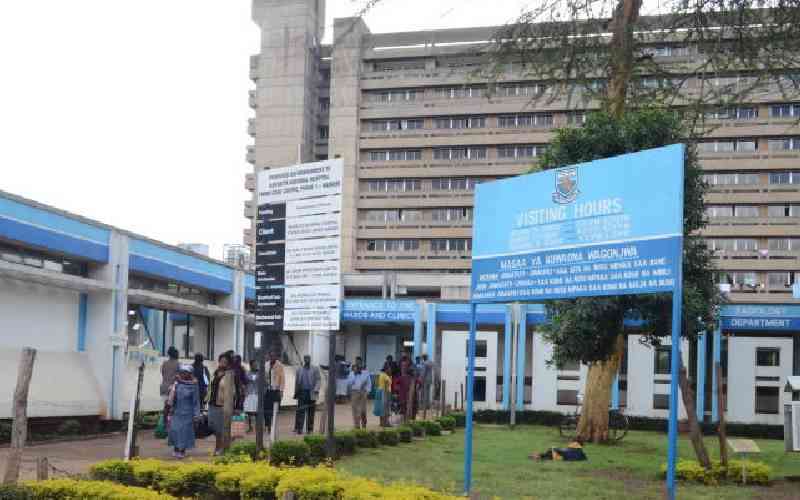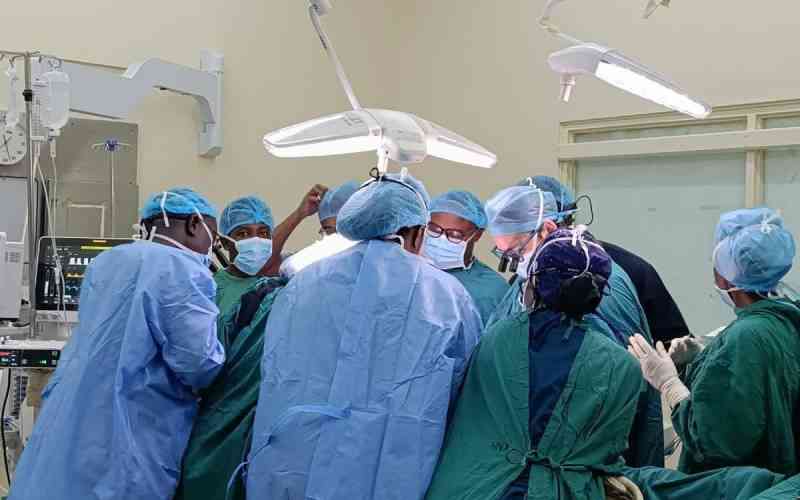
AAR Hospital has introduced a new range of ear, nose, and throat (ENT) tests for newborns, aiming to improve early detection of hearing complications and other related conditions.
The tests, conducted at the hospital's Kiambu Road facility, involve a comprehensive ENT examination to identify any structural anomalies or infections in the ear, nose, and throat that could affect breathing, feeding, or hearing.
"These tests ensure early diagnosis of congenital hearing loss or other ENT-related issues, which, if untreated, can impact speech, language development, and overall cognitive growth," said AAR Hospital ENT specialist Dr Ian Macharia adding, "Early intervention greatly enhances a child's developmental outcomes and quality of life."
Approximately 1 in every 1,000 newborns in Kenya suffers from hearing loss, while ENT infections are a leading cause of morbidity in children. Access to early screening and diagnostic services remains limited, highlighting the significance of AAR Hospital's initiative.
The ENT tests typically include newborn hearing screening using Otoacoustic Emissions (OAE) or Auditory Brainstem Response (ABR) testing to detect hearing loss. Interventions for hearing loss may include fitting hearing aids, cochlear implants, or enrolling the child in early intervention programs.
Middle ear infections (Otitis Media) are treated using antibiotics or, in recurrent cases, minor surgical procedures like tympanostomy tube insertion. Cases of structural anomalies, such as cleft palate or narrow ear canals, are normally referred for surgical or specialized medical intervention.
- AAR expands dialysis services to meet demand
- World Haemophilia Day: AAR operates special clinic to sensitise untreated bleeding disorders
Keep Reading
Dr Wakonyo Gicheru, the lead paediatrician at AAR Hospital, emphasized the importance of early intervention.
"Typically, newborn hearing screenings are easier to treat and more affordable," Dr Wakonyo said.
He said late diagnostics like ABR are costlier and more complex.
The introduction of these ENT tests for newborns aligns with AAR Hospital's recent launch of specialized pediatric service clinics.
These clinics offer a wide range of services, from regular check-ups and vaccinations to health screenings for children of all ages, promoting early diagnosis and treatment of childhood diseases.
The increased demand for pediatric healthcare comes amid a growing prevalence of childhood diseases, congenital disorders, and developmental delays, highlighting the critical need for specialized services and early intervention.
 The Standard Group Plc is a multi-media organization with investments in media
platforms spanning newspaper print
operations, television, radio broadcasting, digital and online services. The
Standard Group is recognized as a
leading multi-media house in Kenya with a key influence in matters of national
and international interest.
The Standard Group Plc is a multi-media organization with investments in media
platforms spanning newspaper print
operations, television, radio broadcasting, digital and online services. The
Standard Group is recognized as a
leading multi-media house in Kenya with a key influence in matters of national
and international interest.











